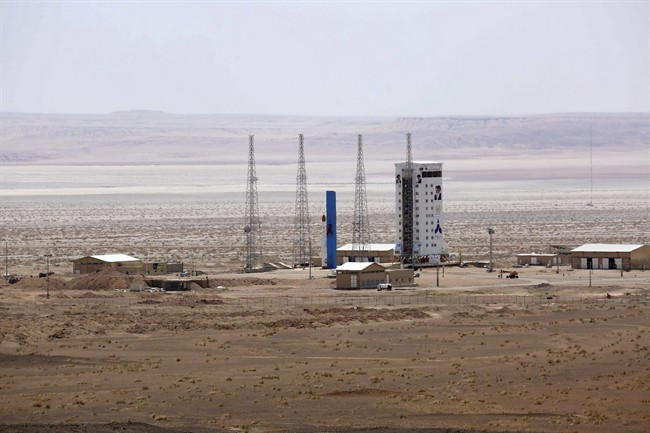The U.S. Treasury imposed sanctions on Friday on six subsidiaries of an Iranian company key to Iran‘s ballistic missile program in response to Tehran’s “continued provocative actions,” including Thursday’s launch of a space launch vehicle.

WATCH: U.S. lawmakers reach deal on sanctions against Russia, Iran, and North Korea

The Office of Foreign Assets Control imposed the sanctions on six Iran-based companies owned or controlled by Shahid Hemmat Industrial Group, the Treasury said in a statement.
Iran denied on Friday U.S. accusations that its test of a rocket that can put satellites into orbit violated a U.N resolution and said Washington’s “rhetoric” was a sign of bad faith towards Tehran’s nuclear deal with world powers.
U.S. State Department spokeswoman Heather Nauert said on Thursday that Iran‘s test violated a U.N. resolution which endorsed the 2015 deal and calls upon Tehran not to conduct activities related to ballistic missiles designed to be capable of delivering nuclear weapons.

Get daily National news
Iran‘s foreign minister, Mohammad Javad Zarif, on Friday denied Tehran had missiles designed to carry nuclear warheads.
“Iran is not, and will not be, developing nuclear weapons; so by definition cannot develop anything DESIGNED to be capable of delivering them,” Zarif said on Twitter.
WATCH: ‘Unchecked Iran’ could follow ‘same path’ as North Korea, says Tillerson

“Iran – unlike the U.S. – has complied in good faith with the letter AND spirit of (the nuclear deal). Rhetoric and actions from U.S. show bad faith,” Zarif added.
Iran said it successfully tested the Simorgh (Phoenix) rocket which it said could put a satellite weighing up to 250 kg (550 pounds) in an orbit of 500 km (311 miles).
WATCH: Nikki Haley calls suspected Iran missile launch ‘unacceptable’

“The U.S. government should abandon its continued hostile behavior and policies that show lack of faith towards the (nuclear deal),” said Iranian Foreign Ministry spokesman Bahram Qasemi, quoted by the state news agency IRNA.
The U.S. Senate voted almost unanimously on Thursday to impose new sanctions on Russia, and crack down on Iran and North Korea for activities including their missile development programs.
The measure also imposes restrictions on anyone involved in Iran‘s ballistic missile program and those who do business with them. The sanctions also apply to Iran‘s Islamic Revolutionary Guards Corps security force.







Comments
Want to discuss? Please read our Commenting Policy first.